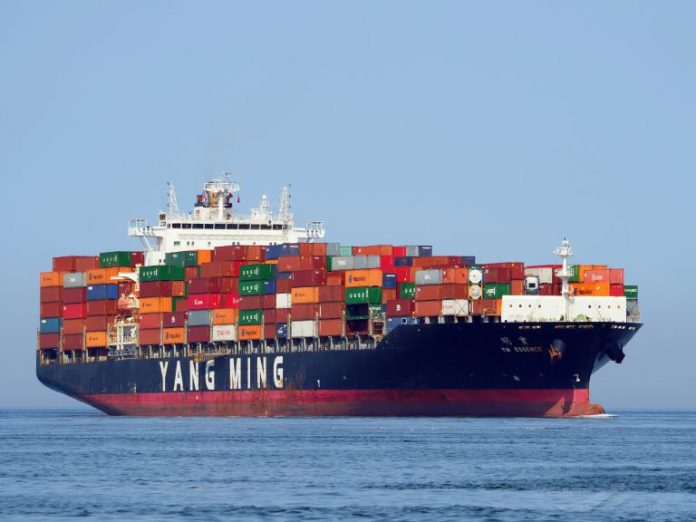In a Covid-19 disrupted year carriers saw demand for capacity first plummet as lockdowns in a number of key regions took hold, most notably in the US and Europe, and then a demand surge saw lines racing to reinstate cancelled services.
Up to November cargo demand, which increased to unprecedented levels, has been maintained, particularly in the US. But unconfirmed reports suggest that this demand may now be falling off and the carriers are looking to adjust their schedules to meet the new levels of demand again.
As a result, THE Alliance (THEA), operated by Ocean Network Express (ONE), Hapag-Lloyd, Yang Ming and HMM, has been the first out of the blocks, with the announcement today that service levels in its FP1, FP2, FE2 and FE3 will continue weekly sailings into January of next year, including the carriers’ FE4 extra loader programme. Each THEA carrier will advise its customers separately on the extra loader sailings, according to an alliance statement.
Meanwhile, on the Pacific THEA will continue weekly sailings for all Pacific southwest services, including the India leg for PS3 and the Pacific northwest loops will maintain their weekly sailings in January except for the following weeks: FP1 Transpacific leg – Week 1 has been cancelled.
As with the West Coast US East Coast services will maintain their weekly sailings in January except for the following weeks: EC3 – Week 01 Asia- Middle East AG1 will remain merged with AG3, and AG2 & AG3 will maintain all sailings in January.
All Atlantic sailings will be maintained in January except for the AL2 – which will be cancelled for week 53
Moreover, several weekly services between the Middle East, the Indian Subcontinent and Europe from January 2021 will be adjusted.
The Indian Ocean Service (IOS) will be operated by ONE, its THEA partner Hapag-Lloyd, CMA CGM and COSCO Shipping and will now have the following rotation; Jebel Ali – Karachi – Nhava Sheva – Hazira – Mundra – Jeddah WB – Tangier – Rotterdam – Hamburg – London – Antwerp – Tangier – Jeddah – Jebel Ali.
Additionally, the same companies, except for Hapag-Lloyd, will cooperate in IOS 2, which will have the following rotation; Jebel Ali – Abu Dhabi – Port Qasim – Nhava Sheva – Mundra – Jeddah –Tangier – Southampton – Bremerhaven – Rotterdam – Antwerp – Le Havre – Algeciras – Jeddah – Jebel Ali.
Hapag-Lloyd’s involvement and offering of the IO2 service will be effectively terminated, with the last sailing being on 31 December.
“IOS and IO2, are dedicated services between Middle East, Indian Subcontinent and Europe will offer competitive transit times and provide more service frequencies in the market. By including Tangier and Algeciras port calls, ONE will also offer diverse solutions to customers,” said ONE.
However, the German carrier will participate in the IO3 vessel sharing agreement with CMA CGM, COSCO and ONE. The updated IO3 port rotation will be Southampton – Bremerhaven – Rotterdam – Antwerp – Le Havre – Algeciras – Jeddah – Jebel Ali – Abu Dhabi – Port Qasim – Nhava Sheva – Mundra – Jeddah – Tangier – Southampton.
Furthermore, CMA CGM, COSCO and Hapag-Lloyd will run another two services in the region, Gulf East Mediterranean Service (GEM) and Indian Subcontinent Mediterranean Express (IMX) services.
The GEM service will be upgraded and run with seven 9,000TEU vessels with its port rotation remaining unchanged: Mersin – Piraeus – Izmit – Istanbul – Aliaga – Iskenderun – Damietta – Jeddah – Jebel Ali – Hamad – Dammam – Jubail – Jebel Ali – Jeddah – Port Said.
The IMX service will be run with eight 7,500TEU boxships with the following port rotation: Piraeus – Marsaxlokk – Genoa – Valencia – Barcelona – Fos – Genoa – Marsaxlokk – Damietta – Aqaba – Jeddah – Hamad – Jebel Ali – Karachi – Nhava Sheva – Mundra – Jeddah – Piraeus







